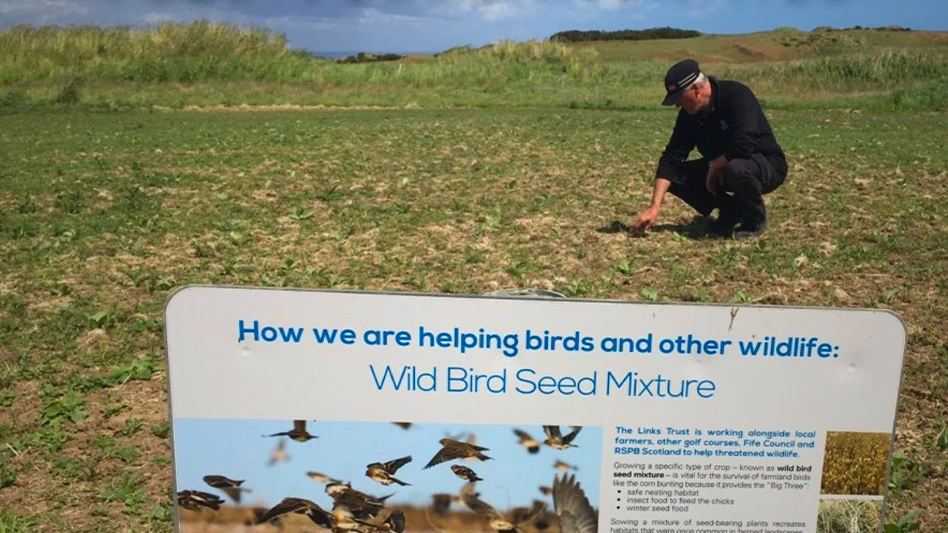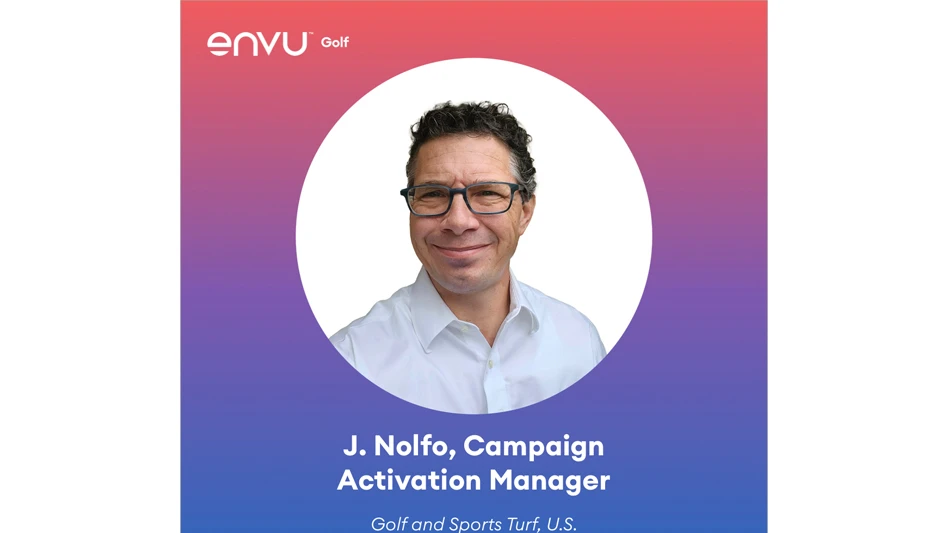 Monroe Miller Monroe Miller |
I was stunned when I saw the USGA Green Section’s Jim Moore at the Golf Industry Show (GIS) a few years ago. His face was swollen and red and distorted. After he was done speaking I rushed up to the speaker’s podium and, with my usual bluntness, asked him, “What in the world happened to you?” After he had chuckled a bit he explained that he was undergoing a treatment that, if successful, would reduce his chances of having skin cancer on his face. I called him this past winter before the GIS in Las Vegas and visited with him at the show about the procedure because I was ready to start it myself. I have been going to a dermatologist for many years, like any number of golf course superintendents I know. Each trip meant a number of pre-cancerous spots on my face and scalp and arms would be removed by freezing with liquid nitrogen. In a few weeks the resulting scabs would peel off and I assumed all was well. However, the frequency and number of these spots gradually increased over the years until this year when the skin specialist recommended setting time aside – in my case about six weeks – to undergo a program with Efudex. This is the trade name for the chemotherapy drug fluorouracil. This chemical removes pre-cancerous cells where it is applied, thereby decreasing the chance for development of skin cancer. In my case, I applied a 5-percent topical crème to my face, forehead and scalp. However, I know of some guys who have used it on their arms, as well. It is applied twice a day, carefully, for the period of time prescribed by the physician. My prescription was two weeks for face and four weeks for forehead and scalp. I wouldn’t call it painful, but it is very uncomfortable, more so as the days move along. You know before you start it is a strong medication – apply with rubber gloves or triple wash hands if gloves aren’t used. For the first few days I thought it was going to be easy. But after about the fourth day the swelling really developed, my skin was tender and sore, dryness set in and my face was bright red. I went one day too long using a razor; it was a real blood bath and my wife had to purchase an electric shaver for me. I had to sleep sitting up for a while.
The confinement bothered me the most but, like Jim Moore, I chose to make my first public appearance among colleagues. For me it was at the Wisconsin Golf Course Superintendents Association’s spring business meeting. By then I was on the mend – my skin had started to really peel off, almost in sheets – but my presence was the “elephant in the room.” It was a chance for me to demonstrate just how serious skin cancer can potentially be for golf course superintendents. In front of me was a perfect audience because all of those in attendance were at an age when protective steps can really count in their favor. I’ve never been surprised that this could potentially be a problem for me sometime in my life. In my youth I watched my grandfather make regular trips to a dermatologist in Dubuque for skin cancer treatments. Also, my genetic composition predisposes me to skin cancer. My bloodlines all come from Northern Europe – Norway, Scotland, England and Germany. I am also a former farm kid who lived outdoors, mostly with no shirt or hat on during the summer months. My Army experience was only a few hundred miles from the equator. And then there are the 40 years on golf courses with much of that tenure at a time when skin cancer dangers were not well understood. Most tragic of all, skin cancer – at least indirectly – killed by father. He suffered terribly for years, and my brother and I were present when he underwent the surgery that removed his nose and chunks of his face. Some cancer cells got away, resulting in salivary gland cancer. After that it was a tumor wrapped around a carotid artery, which then ended with a good-sized tumor in his right kidney. He would have welcomed a chance to use Efudex when there was still a chance for prevention. Nowadays, there is no lack of information on this form of cancer. In many cases it can be avoided if a superintendent or anyone who spend a lot of time under the sun takes care and listens to medical advice and then takes it seriously. Golf course superintendents love sunny days. They are good for healthy turf, great playing conditions and happy players. But they can be an insidious and harmful enemy, too. The plain and simple fact is that precautions must be taken to avoid injury that will almost certainly develop one way or another into a threat that will, in the end, take your life. Jim Moore turned out to be a poster boy for Efudex treatment. By writing this column and sharing these details with you I hope I will be, too. Many of you have the opportunity to never let this medical malady get that far. For your own good, don’t lose that opportunity.
The need for a comprehensive skin cancer resource is evident based on the public’s general lack of understanding of detecting and preventing skin cancer. Here are some basic facts:
|

Explore the June 2012 Issue
Check out more from this issue and find your next story to read.
Latest from Golf Course Industry
- Making the grade — at or near grade
- PBI-Gordon receives local business honor
- Florida's Windsor takes environmental step
- GCSAA names Grassroots Ambassador Leadership Award winners
- Turf & Soil Diagnostics promotes Duane Otto to president
- Reel Turf Techs: Ben Herberger
- Brian Costello elected ASGCA president
- The Aquatrols Company story






